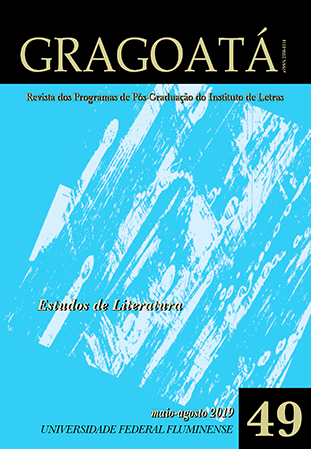On archaism in literary translation: Guilherme de Almeida e Mário Faustino versions of François Villon’s ballads
DOI:
https://doi.org/10.22409/gragoata.v24i49.34115Keywords:
Archaism. French Medieval Poetry. Poetic translation. Guilherme de Almeida. Mário Faustino.Abstract
Archaism is used by translators to mark, basically, two types of literary work: the classical and the archaistic. The use of archaism by the translators of the first type allows them to point out the antiquity of works that belong to the canon of a literary tradition and the translators of the second type to reproduce a literary procedure deliberately used by the author himself. Based on these two usages of archaism, it is compared the translations into Portuguese (by the Brazilian poets Guilherme de Almeida and Mário Faustino) of two ballads by François Villon (respectively, Ballade of Dead Ladies and Ballade of Dead Priests) which approach the biblical topos ubi sunt?
Downloads
Downloads
Published
How to Cite
Issue
Section
License
Authors who publish in Gragoatá agree to the following terms:
The authors retain the rights and give the journal the right to the first publication, simultaneously subject to a Creative Commons license CC-BY-NC 4.0, which allows sharing by third parties with due mention to the author and the first publication by Gragoatá.
Authors may enter into additional and separate contractual arrangements for the non-exclusive distribution of the published version of the work (for example, posting it in an institutional repository or publishing it in a book), with recognition of its initial publication in Gragoatá.

Gragoatá is licensed under a Creative Commons - Attribution-NonCommercial 4.0 International.











